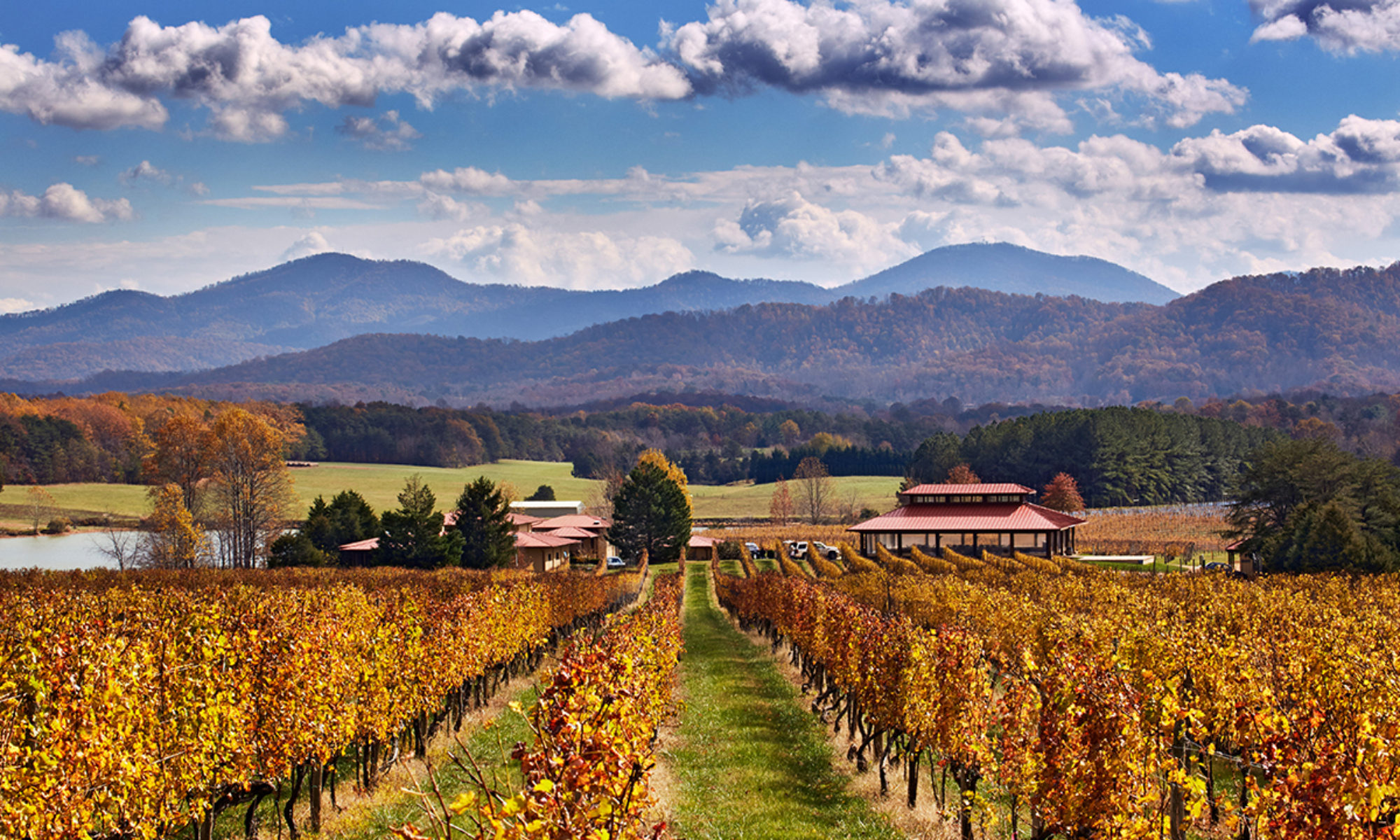Located in Chase City, Mecklenburg County, just off of Interstate 85. American Way is, well, very American. We’ll let grower-owner-winemaker Bill Hill’s website say it: “We have been making wince since 1970. We were convinced to offer our ‘home made craft wine’ for sale. After much discussion, and government red tape, we are now offering our hand crafted wines for sale to the public. Still made with love and attention, the finest country wine you will find! This is truly a craft winery.”
Wine. Tier III. American Way is a fruit winery. They grow all of their fruit, and bottle the wine in small batches on site. Small batches here means, small batches: they will help you bottle your own fruit wine after you’ve tasted the product. The extensive list of options includes, but is not limited to, Blackberry, Strawberry, Peach, Chocolate-Raspberry, Plum, Persimmon, Watermellon, Blueberry, Raspberry, Apple, Elderberry, Pumpkin, Cantaloupe, Cherry, Tomato, and Pear wines .
Setting. Modest surroundings in Bill’s house. As one review puts it, “just a local doing what he loves.” Very relaxed, unpretentious, and open every day. Note the tasting room can only seat five people.
Stories. Making Wine in Virginia: fruit wines. It may sound strange, but it is true: the first wines were not grape wines. Making alcohol by fermenting fruit juice was first done in Mesopotamia, more than 10,000 years ago, from figs, dates and watermelons. While grapes conquered the field once farmers realized how good fermented grape juice could taste, making fruit wines never went out of fashion. The famous Eleanor of Aquitaine, Queen of France and then Queen of England, loved her pear wine, while Leonardo Da Vinci was partial to peach wine. But where fruit wines have really held their own is down on the farm. The easy availability of different fruits in orchards, and the difficult accessibility of commercially-made grape-based wines, has helped fruit wine stay popular among farmers across the world. Virginia is no exception. Many Virginia vineyards have their origins on family farms, where the growing popularity and economic success of wines helped small farms grow revenues and stay in business. And many of wineries associated with these farms have kept producing fruit wines alongside their new “mainstream” grape-based wines. A handful, like American Way Country Wines, have made a different choice: why bother with grapes at all? Grapes can be more finnicky than many other fruits, and everybody else is going there, why not stick to fruit wines? Traditional wine drinkers may think they’ve stumbled on a new thing here, but the truth is that fruit wines are an old thing, a very old thing. And as Bill Hill shows, they’re still going strong.
